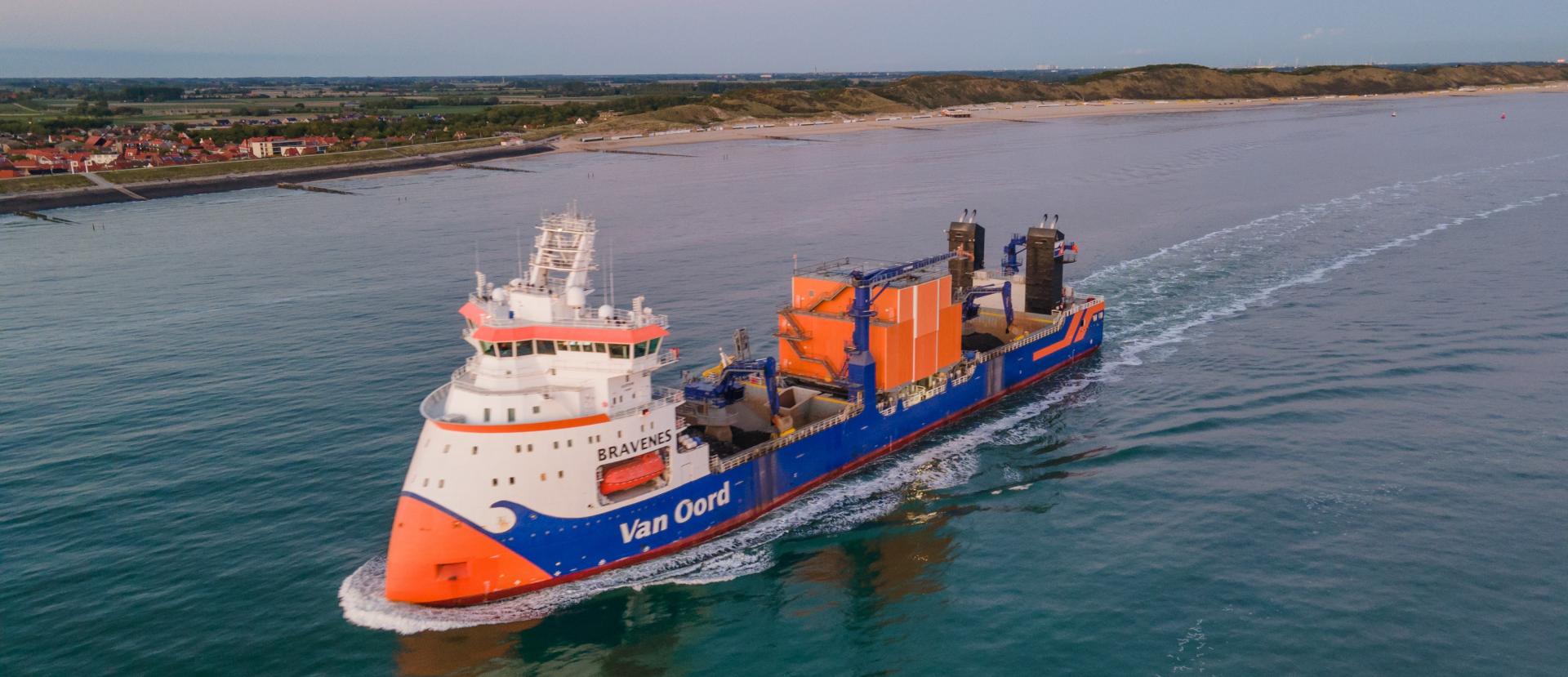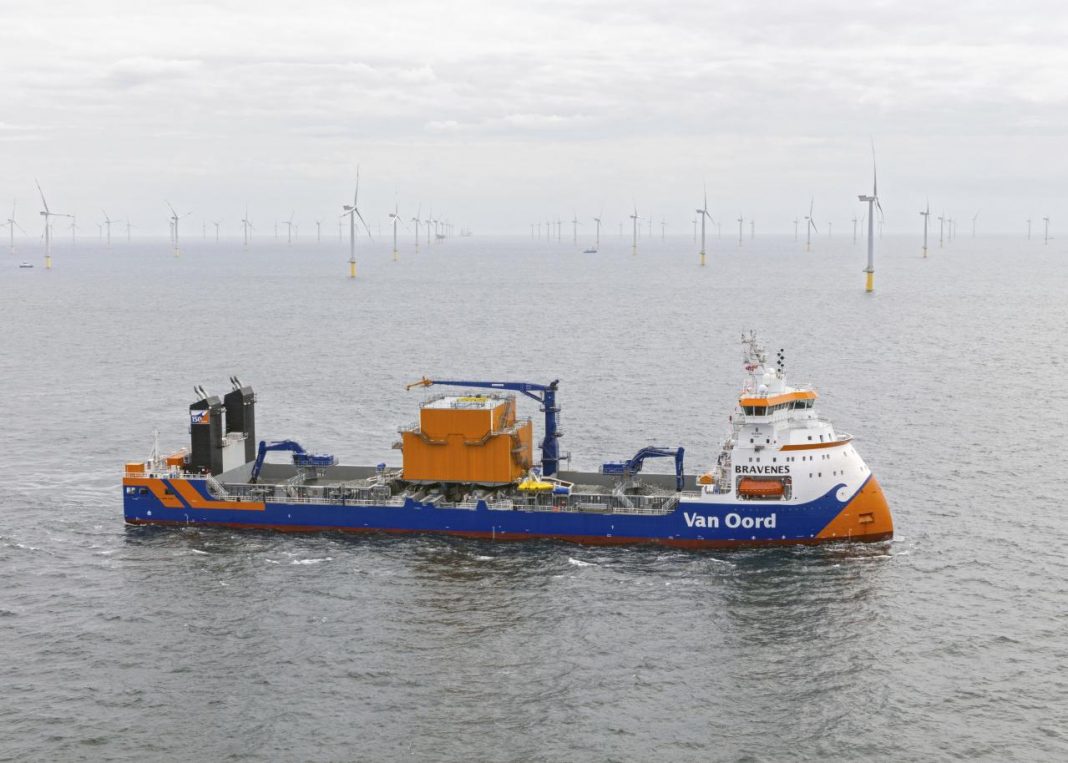Van Oord is taking a next step in the energy transition of its fleet. An advanced combustion conditioning system with hydrogen and methanol will be installed on subsea rock installation vessel Bravenes.
The FUELSAVE FS MARINE+ is a patented solution to reduce both fuel consumption and harmful emissions of marine diesel-powered engines. This solution enables Van Oord to achieve substantial carbon dioxide (CO2), nitrogen oxide (NOx), particulate matter (PM) and black carbon (BC) reduction on existing ships.
Van Oord is committed to becoming carbon-neutral by 2050, in line with the Paris Agreement. This commitment reflects the company’s desire to limit its impact on climate change. The collaboration with FUELSAVE facilitates a sustainable and viable initiative to reduce the carbon footprint of the new and existing fleet. Making it more energy efficient and reducing emissions. FUELSAVE was one of the selected companies of PortXL, of which Van Oord is one of the founding partners. PortXL is a port and maritime accelerator platform that encourages innovation within the global maritime industry.

After more than 5 years of validating the technology in the field, in the laboratory and deploying the system on the world’s largest single row 4-stroke engine, the FS MARINE+ solution has been chosen by Van Oord. This is the first time that the system is being deployed on MaK engines with a classification from Bureau Veritas and Kongsberg Vessel Insight integration for a demanding DP3 operation. This sustainable investment is paving the way for next generation of structural efficiency enhancement and emission reduction for the offshore industry.
‘Our product optimises the energy consumption and the environmental impact significantly irrespective of a vessel’s fuel type. Due to it being a unique combination of an efficiency enhancement and emission reduction solution, we are able to deliver over 400% higher overall emission reduction potential than other efficiency enhancement technologies with the same level of primary fuel savings. We are not treating a symptom but tackling the root of the problem by means of advanced combustion conditioning using hydrogen and methanol. The cleaner combustion provides additional potential greenhouse gas emission reduction, such as CO2 (approx. 8-15%), NOx (approx30-80%) and BC (approx 33%).’
— Marc Sima, CEO of FUELSAVE GmbH










